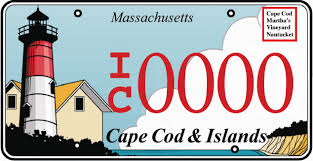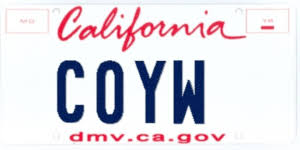 The Cape Cod Commission, on behalf of the Barnstable County Board of Regional Commissioners and the Barnstable County Economic Development Council (BCEDC), has awarded more than $136,000 in grant funds through the Barnstable County License Plate Grant Program to support COVID-19 Recovery and Resiliency projects. The Barnstable County Board of Regional Commissioners voted unanimously to award the following six grants: $25,0000 to Sustainable Cape: Center for Agricultural Preservation and Education to expand access to locally grown and produced foods $25,000 to Love Live Local for the Cape Cod Resilience Fund to provide economic relief to Cape Cod’s small business community $24,802 to Cape Cod Community College to develop the curriculum for the Massachusetts Community Health Worker program $25,000 to the Arts Foundation of Cape Cod to support Cape Cod arts and cultural organizations as they work to recover and reopen $11,545 to Cape Cod Young Professionals to support workforce retention and development through CCYP’s new Laser-Focused Coaching Program $25,000 to the Lower Cape Community Development Corporation to provide comprehensive business support to Lower-Cape based small businesses The Barnstable County License Plate Grant Program, funded by proceeds from the sale of Cape Cod and Islands specialty license plates, is intended to support regional priorities for economic development and achievement of long-term economic diversity and sustainability. The funding was made available to local or regional governmental or nonprofit agencies for projects that support recovery efforts from the COVID-19 pandemic and resiliency to such impacts in the future. Projects proposed were required to address a documented impact of the pandemic and align with and support implementation of the region’s Comprehensive Economic Development Strategy (CEDS). Eighteen proposals were submitted in response to a Request for Proposals issued in June. The BCEDC recommended six proposals for funding, which were approved by the Barnstable County Board of Regional Commissioners.
0 Comments
 Wayne LaPierre with President Donald Trump Wayne LaPierre with President Donald Trump New York state's attorney general sued to dissolve the National Rifle Association on Thursday, alleging senior leaders of the non-profit group diverted millions of dollars for personal use and to buy the silence and loyalty of former employees. The lawsuit announced by Attorney General Letitia James alleges NRA leaders paid for family trips to the Bahamas, private jets and expensive meals that contributed to a $64 million reduction in the NRA's balance sheet in three years, turning a surplus into a deficit. James alleged in a statement that NRA leaders "used millions upon millions from NRA reserves for personal use," failing to comply with the NRA's own internal policies in addition to state and federal law. The confrontation pits James, a Democrat, against the largest and most powerful gun organization in the United States, one that is closely aligned with President Donald Trump's Republican Party. The action is certain to further polarize a country where the NRA is revered by conservatives as a champion of the U.S. Constitutional right to keep and bear arms and vilified by liberals as an enabler of rampant gun violence. "The NRA's influence has been so powerful that the organization went unchecked for decades while top executives funneled millions into their own pockets," James said in a statement. "The NRA is fraught with fraud and abuse, which is why, today, we seek to dissolve the NRA, because no organization is above the law." The NRA, which teaches gun safety in addition to advocating laws making it easier for Americans to own guns and ammunition, is subject to New York law because it is registered as a non-profit organization in New York, where it conducts most of its financial transactions. The NRA, which has its national headquarters in Fairfax, Virginia, about 20 miles (30 km) west of Washington, D.C., did not immediately respond to a request for comment. New York state and the NRA have tangled before. The state has taken legal action against NRA-branded insurance policies sold to gun owners, and the NRA is suing the state for closing gun stores under an executive order to halt the spread of COVID-19.
The latest lawsuit names the NRA as a whole and four senior executives of the group including Wayne LaPierre, the executive vice-president who has been atop the leadership for decades. It also names former Treasurer and Chief Financial Officer Wilson Phillips, former Chief of Staff and Executive Director of General Operations Joshua Powell, and Corporate Secretary and General Counsel John Frazer. The suit charges the NRA with "awarding contracts to the financial gain of close associates and family, and appearing to dole out lucrative no-show contracts to former employees in order to buy their silence and continued loyalty," James's office said in a statement. "The failure of the NRA to comply with multiple fiduciary responsibilities and state and federal laws resulted in the NRA seeing substantial losses on its balance sheet: going from a surplus of $27,802,714 in 2015 to a net deficit of $36,276,779 in 2018 - contributing to a total loss of more than $64 million in just three years," the statement said. In addition to attempting to close down a group that has existed since 1871, James seeks to recover millions of dollars in lost assets and to stop the four executives from serving on the board of any other not-for-profit group in the state. (Reported by Daniel Trotta and David Shepardson; Editing by Howard Goller - Reuters) Proposition 15: Increases Funding for Public Schools, Community Colleges, and Local Government Services by Changing Tax Assessment of Commercial and Industrial Property. Initiative Constitutional Amendment. Yes/No Statement A YES vote on this measure means: Property taxes on most commercial properties worth more than $3 million would go up in order to provide new funding to local governments and schools. A NO vote on this measure means: Property taxes on commercial properties would stay the same. Local governments and schools would not get new funding.  Dr. Priscilla Chan and Mark Zuckerberg Dr. Priscilla Chan and Mark Zuckerberg The Legislative analysis states that increased property taxes on commercial properties worth more than $3 million will provide $6.5 billion to $11.5 billion in new funding to local governments and schools. 60% would go to cities, counties, and special districts. Each city, county, or special district’s share of the money depends on several things including the amount of new taxes paid by commercial properties in that community. Not all governments would be guaranteed new money. Some in rural areas may end up losing money because of lower taxes on business equipment. The other 40% would increase funding for schools and community colleges. Each school or community college’s share of the money is mostly based on how many students they have. ‘Property’ Includes Land, Buildings, Machinery, and Equipment. The measure requires commercial and industrial (after this referred to simply as “commercial”) land and buildings to be taxed based on how much they could be sold for instead of their original purchase price. This change is put in place over time starting in 2022. The change does not start before 2025 for properties used by California businesses that meet certain rules and have 50 or fewer employees. Housing and agricultural land continues to be taxed based on its original purchase price. The measure reduces the taxable value of each business’s equipment by $500,000 starting in 2024. Businesses with less than $500,000 of equipment pay no taxes on those items. All property taxes on business equipment are eliminated for California businesses that meet certain rules and have 50 or fewer employees. The Chan Zuckerberg Initiative (CZI) was founded by Dr. Priscilla Chan and Mark Zuckerberg in 2015, and according to the website, is a new kind of philanthropy that’s leveraging technology to help solve some of the world’s toughest challenges — from eradicating disease, to improving education, to reforming the criminal justice system. To date, CZI has granted $1.805 million to the campaign and is contributing an additional $4.5 million, bringing total support for the measure to just over $6.3 million. CZI is also granting $1 million to the No on Proposition 20 campaign to oppose a measure that would incarcerate more people for low-level crimes and increase already bloated prison budgets. “For generations, there has been profound inequity in the way we resource local services — with disinvestment over time and an increasingly limited ability for local communities to address their most pressing needs,” said Michael Troncoso, Head of Justice & Opportunity at CZI. “Even before COVID-19, Black and Brown communities have lacked the resources needed to sustain adequate local health care systems, protect essential workers, and support our schools. This systematic disinvestment was built into the law, and we now have the historic opportunity, through Proposition 15, to correct it and get our communities the support they need.” Campaign Finance Reports from the Secretary of State show the payments made by CZI.
Surfing advocates and California’s Coastal Commission rained ire this week on a bill that would allow San Diego and Orange county homeowners to build seawalls by right, sidestepping commission oversight. Seawalls are highly controversial in California, viewed as a property defense against sea-level rise and the crumbling of coastal cliffs. At the same time, seawalls prevent the natural replenishment of beach sand from cliff faces and land runoff. Republican Sen. Pat Bates, who represents portions of San Diego and Orange counties, brought SB 1090 before the Senate Natural Resources and Water Committee allowing testimony from pre-selected speakers. The father of an Encinitas family that lost three members when a cliff collapsed on top of their weekend picnic last year gave emotional testimony on behalf of the bill. “There is no plan for sand replenishment or any other bluff changes to increase safety on this very popular stretch of beach where my accident occurred,” said J. Patrick Davis, a pediatric dentist. Seawalls, or “hard armoring” as Surfrider Foundation’s scientist Jennifer Savage called the structures, do not make beaches safer, she said. “They destroy the beach by speeding-up erosion,” Savage said.  The Coastal Commission representative argued the Encinitas incident was a tragic accident, not due to a lack of action by the commission to approve or deny a seawall in the area. “The bill is designed to make it faster, easier and cheaper to build seawalls primarily to protect private residential development,” Sarah Christie, the commission’s legislative director, testified. “For every seawall that is built, the public loses a beach.” There was no committee vote, however. Sen. Henry Stern, the committee chair, and Bates agreed ahead of time to hear the bill without the vote, and testimony was heard on May 26, 2020. said Josh Kirmsse, Stern’s communications director. The Committee Analysis states that for Orange and San Diego Counties, this bill would effectively authorize by-right construction of sea walls/other hard shoreline structures and only allow the commission or a local government to deny an application for a shoreline protective device only if they determine that the construction of a shoreline protective device would constitute a substantial threat to the public health or safety. It also seeks to prohibit a state agency or local government to adopt an ordinance, regulation, policy or rule that is inconsistent with these requirements. Supporters of the bill include California Apartment Association, California Association of Realtors, Newport Beach Association of Realtors, North San Diego County Association of Realtors, Oceanside Chamber of Commerce, Orange County Realtors, County of San Diego, and ‘four individuals’.  Marce Gutierrez-Graudins Marce Gutierrez-Graudins Opposers to the bill included Azul. Azul was founded in 2011 by Marce Gutierrez-Graudins, to bring Latinxs perspectives and participation to ocean conservation, and are legally organized under the Trust for Conservation Innovation. After experiencing how mainstream ocean conservation efforts and campaigns were leaving Latinxs out, Marce decided to start Azul to engage her community in protecting coastal resources and marine life. In a joint sign-on letter expressing strong opposition, Azul, among others, writes that SB 1090 “would pave the way for private property owners to effectively hasten and accelerate the loss of public beaches from the Orange County and San Diego coasts under the guise of claiming to improve public safety.” Others who registered in opposition to the bill were California Coastal Protection Network, Heal the Bay, California Coastal Commission, California Coastkeeper Alliance, California League of Conservation Voters, California Native Plant Society, Center for Biological Diversity, Clean Water Action, Defenders of Wildlife, Natural Resources Defense Council, Plastic Pollution Coalition, Seventh Generation Advisors, Sierra Club California, Surfrider Foundation, The 5 Gyres Institute, The Center for Oceanic Awareness, Research, and Education (COARE), The Honorable Betty T. Yee, California State Controller, and the Nature Conservancy. Senators will do more work on the legislation at the committee level. The bill analysis also states that erosion will be exacerbated by the presence of sea walls on the seaward size of the sea wall. Public accessibility will be correspondingly compromised. Beaches need natural erosion and sediment transfer for their health. Living shorelines, soft armoring and managed retreat, if necessary, should be prioritized. How can shoreline armoring be “designed to mitigate or protect against coastal erosion” as it is known to exacerbate that very thing? It also comments that the bill provides an implicit public subsidy to private landowners.
Click here for the full bill text. Lawsuit Aims To End California License Plate Language Restrictions - Michael Towner, Iconic Legacy8/1/2020  California may have to end most restrictions on personalized license plate language that some might find offensive, if a lawsuit filed Tuesday prevails. The libertarian Pacific Legal Foundation lawsuit challenges the state Department of Motor Vehicles' current policy on free speech grounds. The department denied more than 30,000 of the nearly 250,000 applications submitted in 2018, the last year for which statistics are available, after deciding that the proposed language “may carry connotations offensive to good taste and decency," says the lawsuit filed in federal court in San Francisco. “This broad and vague regulation requires four full-time DMV administrators police license plate applications," the lawsuit argues. Those denials “deprive plaintiffs their right to freedom of speech, in violation of the First Amendment to the United States Constitution." Department officials did not immediately respond to telephone and email requests for comment. The program brings the state more than $60 million each year. The environmental plates challenged in the lawsuit cost $53 initially and $43 annually to renew and are among 14 special interest license plates that help pay for environmental and special programs. The lawsuit comes months after another federal judge rejected the department's argument that vehicle license plates constitute government statements, ruling that it is unlikely that “viewers perceive the government as speaking through personalized vanity plates.” In that challenge filed by the same nonprofit legal organization, the department subsequently allowed California soccer fan Jonathan Kotler to honor his favorite team with the vanity plate “COYW.” Kotler supports London-based Fulham, whose fans often chant “Come On You Whites” for their players in white jerseys. “Upon further administrative review, the DMV determined Mr. Kotler's personalized plate request for ‘COYW' should not have been rejected and is expediting the approval to get it to Mr. Kotler as quickly as possible,” Anita Gore, a deputy director with the DMV, wrote in an email on Tuesday. The DMV had previously told Kotler “COYW” has “connotations offensive to good taste and decency.” But the department didn't change its underlying policy, which the new lawsuit seeks to end on the grounds that the First Amendment doesn't allow the government to ban speech just because it finds it offensive. “We probably wouldn't challenge a regulation limited to seven obscene words, but it strains credulity to say that there are over 30,000 messages per year, ranging from sports cheers (COYW) to someone's nickname (OGWOOLF) that need to be banned," foundation attorney Wen Fa said in an email exchange. “As the DMV's regulation underscores, vague bans on ‘offensive' speech inevitably lead to arbitrary results.” The OGWOOLF plate was sought by the firm's lead plaintiff in the new lawsuit, Army veteran Paul “Chris” Ogilvie of Concord, California. He says it combines the first two letters of his last name with an old nickname. The department rejected the plate for fear people would interpret OG as short for “original gangster,” the lawsuit says. It says he acquired the nickname OG during his military service. The firm probably has a good point, said Eugene Volokh, who teaches First Amendment law at the the UCLA School of Law. "When the government sets up a program in which people can engage in their own speech, like a license plate program, it generally has to administer it in a reasonable and viewpoint-neutral way, so it doesn't discriminate based on viewpoint,” he said. The current policy seems to fall short, he said, “first of all because that's very vague and separately because some of the offensiveness that the DMV seems to be pointing to seems to come from the viewpoint.” The suit includes plaintiffs with four other examples:
- “DUK N A,” which the lawsuit says is short for Ducati motorcycles and Andrea, the first name of plaintiff Andrea Campanile. The department said it sounds like an obscene phrase. - “BO11UX,” though the lawsuit says “bullocks” has been used to mean “nonsense” in a national advertising campaign. - “SLAAYRR,” which it says is a reference to the metal band - “QUEER,” which it says is a reference to the plaintiff's sexual orientation and his record label, Queer Folks Records, which he adopted in an effort to reclaim what has become a pejorative label. Even if the state ultimately allows more arguably offensive words on license plates, Volokh said, "it's not such a huge deal. It's not that people will start distrusting the DMV. Anything people can say on a license plate they could say on a bumper sticker.”  Lynsi Snyder, pictured with fourth husband Sean Ellingson earlier this year. Photo / Getty Images Lynsi Snyder, pictured with fourth husband Sean Ellingson earlier this year. Photo / Getty Images Notoriously private billionaire CEO Lynsi Snyder appeared on the 2019 Wealthiest Angelenos List, published by the Los Angeles Business Journal, at number 27, with a net worth of $2.9 billion, well above Shawn ‘Jay-Z’ Carter and Beyonce Knowles-Carter who were tied with Aubrey Chernick at number 49 with $1.5 billion. Aubrey Chernick grew up in Deloraine, a small town of 900 people in the Canadian province of Manitoba where his father owned a small store (“Thrifty Stores”). Chernick started his own software company to build software that would manage a new IBM Operating System. He called his company Candle Corporation. IBM itself became a customer of Candle when IBM had difficulty in understanding how their own computers worked. In 2015, Chernick launched NextGen Crowdfunding, as the go-to place on the Web where they can educate themselves on the latest application of these critical fund-raising programs.  Evan Spiegel and Miranda Kerr Evan Spiegel and Miranda Kerr Elon Musk topped the list at a net worth of $22.6 billion. Evan Spiegel, co-founder and CEO of the American social media company Snap Inc., (Snapchat) which he created with Bobby Murphy and Reggie Brown while they were students at Stanford University, is now ranked at 19, with a net worth of $3.7 billion. Spiegel was named the youngest billionaire in the world in 2015. He is now 30 and married to Miranda Kerr, a former Victoria’s Secret Angel Lynsi Snyder spoke about her troubled life and her unexpected side job during a very rare media interview. The 37-year-old is the heiress to the In-N-Out burger chain fortune, with a net worth of around $3.6 billion in 2020, according to Forbes. The beloved US fast food chain was founded by her grandparents Harry and Esther Snyder in California in 1948. Due to a series of family tragedies, Ms Snyder became the family's last remaining heir in 2000 when she was just 18, after the deaths of her father and uncle. Her father Guy Snyder died of an overdose in 1999, when she was just 17. Her uncle Richard Snyder had died in 1993 in a plane crash along with In-N-Out executive vice president Philip R West. She said her parents had divorced when she was 12, after the drugs and "another woman" impacted on the marriage. She began gradually receiving stakes in the business as part of a complicated trust plan made by her grandparents, and in 2017 she received the last slice of her fortune, on her 35th birthday.
She took over as president of the company in 2010, but despite being one of America's richest — and youngest — people, Ms Snyder had long shunned the spotlight in favor of a more reclusive life. The mother of four — who has been married four times — told The Christian Post she previously battled drug and alcohol abuse before turning her life around due to her faith. She also spoke about her side job as a Christian minister, after founding the Army of Love ministry during a particularly "painful" period of her life. "That's when I really started longing for that attention and that love, because my dad was the greatest source of that," she said. "I was calling out to God as my third marriage was failing. I was in a place where I felt I couldn't do ministry because my own heart and home were a mess," she told the Christian Post. "My (ex) husband and I were in constant turmoil. I became desperate for the hope that I could be used by God despite my circumstances." She ended up studying discipleship online and filed for a non-profit tax-exemption. As she waited for it to be approved, she ended up meeting her current husband Sean Ellingson, and the filing was approved shortly after the pair tied the knot. Ms Snyder said she was also a believer in "servant leadership" — a leadership philosophy where the leader's main goal is to serve others rather than grow the business. She said she worked hard as In-N-Out CEO to "maintain" the business without "compromising the quality of product, service, or standards." "My grandparents set the bar high and I only try to raise it," she said. |
BLOGArchives
January 2025
Categories
All
|